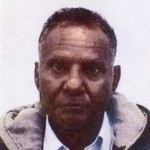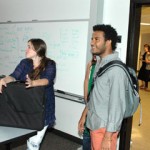 The proof of a rising Colorado political bloc is on the ballot in November as , and Naquetta Ricks, born in Liberia, could join the University of Colorado Board of Regents.
The proof of a rising Colorado political bloc is on the ballot in November as , and Naquetta Ricks, born in Liberia, could join the University of Colorado Board of Regents.
The emergence of African candidates for state office seems sudden, but the political momentum of first- and second-generation Africans in Colorado has been building for decades since Jimmy Carter signed the Refugee Act of 1980, which brought the first wave to the Rocky Mountains.
The left-leaning bloc has money, organization and solidarity to support candidates in this closely divided swing state, according to community organizers and some academics who have studied the evolution of the emerging demographic in Colorado.
Neguse and Ricks are among an estimated 50,000 first- and second-generation African immigrants who live in the Denver metro region and operate more than 300 businesses that employ thousands, according to census and other data.
Mexico remains the most common country of origin for Colorado’s immigrants, but second is Ethiopia. All African countries account for about half as many Mexicans, according to immigration statistics from the Department of Homeland Defense.
With rising numbers and rising economic profile come rising power, and in Colorado the Africa bloc is flexing its muscle.
A study by the City University of New York’s Institute for Demographic Research and the school’s sociology department found that the election of Barack Obama, the son of a Kenyan, energized others with immediate ties to Africa.
Through several African groups, immigrants in the Denver metro area seem to have embraced politics at an accelerated rate in a more sophisticated way than those in other large U.S. cities, the study’s co-author, Holly E. Reed, said in an interview this week.
Ballot test
In other cities, African immigrants tend to stick to local issues. In Colorado, they aim for the top.
This year, Neguse is the Democratic nominee for secretary of state, an office coveted by national Republicans and Democrats in swing states this year.
The Colorado Democratic Party named Neguse its “rising star” in 2012, and politicos in each party say he could someday run for governor if this year’s campaign goes well.
Last month, Ethiopian-born Daniel Yohannes, who moved to Denver in 1992, was appointed by President Obama as ambassador to the Organization for Economic Co-operation and Development in Paris.
Neguse and Ricks said their families’ origins and and their appreciation of America’s opportunities fuel their fire for American values and public service.
“I was raised with a heart for getting out and getting involved in the community,” said Ricks, who is president of Network Financial Group and a public education activist in Aurora. “My family never took for granted the opportunities we have here, especially higher education.”
After she volunteered on Obama’s Colorado campaign in 2012, Democrats and the Denver-based African Leadership Group approached Ricks to run for office. She has seen first-hand the rising tide of political interest from the immigrant community.
“People are starting to wake up and say, ‘We have to be heard in politics,’ ” Ricks said.
A continuing trend
Political activity among African immigrants is a new but strong trend, said Peter Van Arsdale, a cultural anthropologist and author who directs the African Initiative at the University of Denver’s Josef Korbel School of International Studies.
“They’ve been active socially. They’ve been very active in business. They’ve been active in education and science, but not so much politics, until lately,” he said.
Van Arsdale predicted that if Neguse is successful, it will step up the pace even more. “I think Joe Neguse is going to open the door, and you’re going to see other people of African descent getting into politics, both men and women,” he said. “And I have no doubt the women will do just as well as the men.”
Many African cultures assign community leadership roles to women — Liberia, Central African Republic and Malawi have female presidents — and those who are raised with that expectation don’t readily see political limitations, Van Arsdale said.
Reed said U.S. immigration laws favor Africans who have education, skills and a command of English, which other immigrant groups can’t quickly match.
“They have a lot of human capital, a lot of things going for them when they come to the United States,” she said. “We’re getting the highly qualified and highly educated immigrants here.”
The acceleration in African emigres is largely because of those who arrived early, bringing family, said Reed. She noted that in New York City, politicians are beginning to avail themselves to African immigrant communities not only for their numbers, but also for their strong tendency to vote and the increasing interest in donating to political campaigns.
“I think there’s a recognition now that, ‘Hey, we have some numbers, and we could affect change, at least on the local level,’ ” Reed said.
Among Neguse’s supporters and Ricks’ volunteers is Ethiopian immigrant Nebiyu Asfaw, a Denver metro area project manager for Verizon Business and an organizer for the second annual Taste of Ethiopia Grand Festival at Laredo Elementary School on July 27.
Asfaw’s parents were businesspeople in Ethiopia who sent him here for a better education and more opportunities.
“Because of the opportunities I’ve had, it made me want to give back, to make a difference, to work together to make our community better,” he said. “That’s not just an Ethiopian perspective — that’s an American perspective.”










![Why the arrest of Andargachew Tsige is huge embarrassment for the West [foreignpolicy.com]](https://www.ethiopianopinion.com/wp-content/uploads/2014/07/andarg2-150x150.jpg)











![Police in Addis Ababa arrested Ethiopian woman for wearing fake butt pads [Satire] Police in Addis Ababa arrested Ethiopian woman for wearing fake butt pads [Satire]](https://www.ethiopianopinion.com/wp-content/plugins/top-10/timthumb/timthumb.php?src=http%3A%2F%2Fwww.ethiopianopinion.com%2Fwp-content%2Fuploads%2F2014%2F04%2FUnknown-150x150.jpg&w=&h=&zc=1&q=75)





Join Conversations